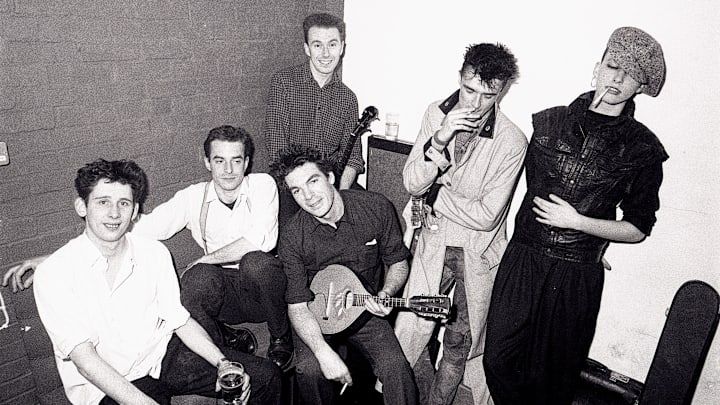The Pogues, formed in London in 1982, stand as a legendary testament to the creative possibilities of music. This Anglo-Irish group brought a visceral energy to the punk rock scene, fusing it seamlessly with traditional Irish folk music. Their distinctive sound, laden with cultural heritage, continues to resonate with audiences worldwide.
The band was originally called Pogue Mahone, a playful nod to their Irish roots — the name translates from Gaelic as "kiss my arse." However, to avoid controversy, they eventually shortened it to The Pogues. The group was founded by three core members: Shane MacGowan, Spider Stacy, and Jem Finer, and later expanded to include musicians like James Fearnley and Andrew Ranken.
From their inception, The Pogues stood out for their unique instrumentation, featuring banjos, accordions, tin whistles, and mandolins, combined with MacGowan's raspy, evocative vocal style. They released their debut album, Red Roses for Me, in 1984. Songs like "Dark Streets of London" showcased their ability to balance raw punk energy with the lyricism of Irish folk, establishing them as an innovative force in both genres.
Their second album, Rum Sodomy & the Lash (1985), produced by the legendary Elvis Costello, propelled them to critical acclaim. Tracks like "A Pair of Brown Eyes" and "The Sick Bed of Cuchulainn" highlighted MacGowan’s poetic storytelling and gritty humor. Of course, a band wouldn't be much without its biggest songs, so what about those?
Iconic song of The Pogues
Among their vast catalog, one song stands above the rest: "Fairytale of New York" (1987). A duet between MacGowan and Kirsty MacColl, it has become a perennial yet unconventional Christmas classic and is widely hailed as one of the greatest holiday songs ever written (though its lyrics are sometimes considered controversial). The song was recently performed on Saturday Night Live.
Other fan favorites include:
"Dirty Old Town" – A heartfelt ballad that captures urban life with melancholy and nostalgia.
"Sally MacLennane" – A raucous celebration of Irish heritage.
"If I Should Fall from Grace with God" – A rollicking anthem showcasing the band’s ability to blend genres effortlessly.
Shane MacGowan’s influence
Shane MacGowan’s influence is central to The Pogues’ identity, and not just because of his distinctive teeth. His lyrics, marked by a blend of humor, heartbreak, and vivid storytelling, made their songs timeless. As a songwriter, MacGowan combined country and folk traditions with modern punk dynamics, creating melodies that felt both fresh and deeply rooted.
However, his struggles with alcoholism and erratic behavior led to his departure from the band in 1991. Despite this, his contributions remain the bedrock of their legacy, and he joined the group for reunions in later years.
Later years and legacy
After MacGowan’s departure, The Pogues experimented with other vocalists, including Joe Strummer of The Clash for a brief period. While they continued to release music and tour, they never fully recaptured the magic of their earlier years. The band disbanded in 1996, though they reunited periodically for special performances and tours, reigniting the spark for their loyal fanbase.
The Pogues were trailblazers in every sense. They brought Irish folk music to a broader audience, blending it with punk to create a genre-defying sound. Their influence can be seen in the works of countless bands that followed, as they paved the way for blending traditional music with modern energy.
Even decades later, The Pogues remain a beacon of musical innovation, celebrated for their raw emotion, spirited storytelling, and unforgettable melodies. They are not just a band—they are a cultural phenomenon, a bridge between past and present, and a testament to the enduring power of music to transcend genres.
